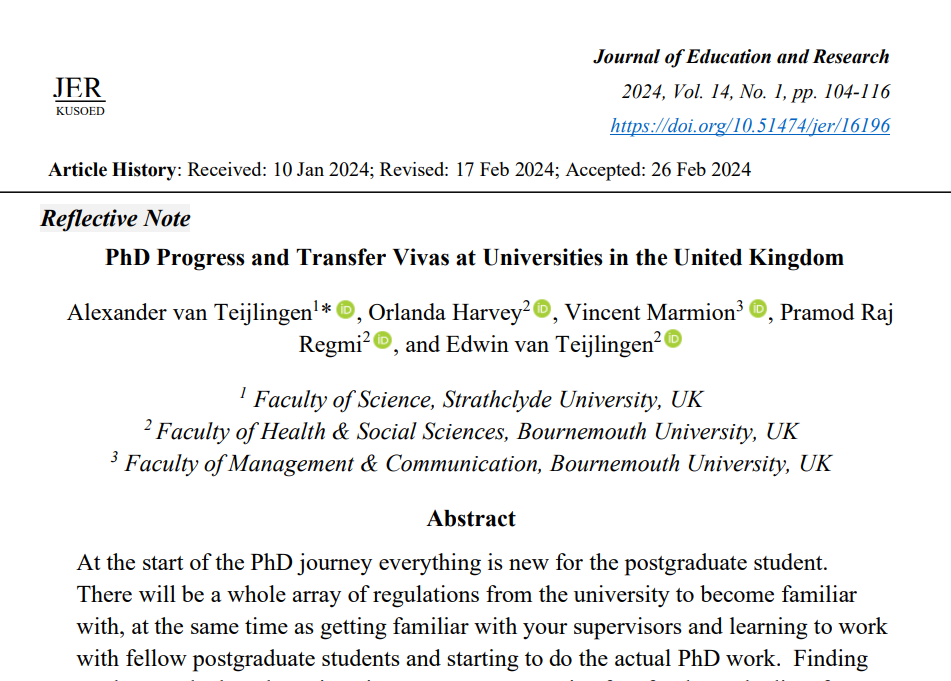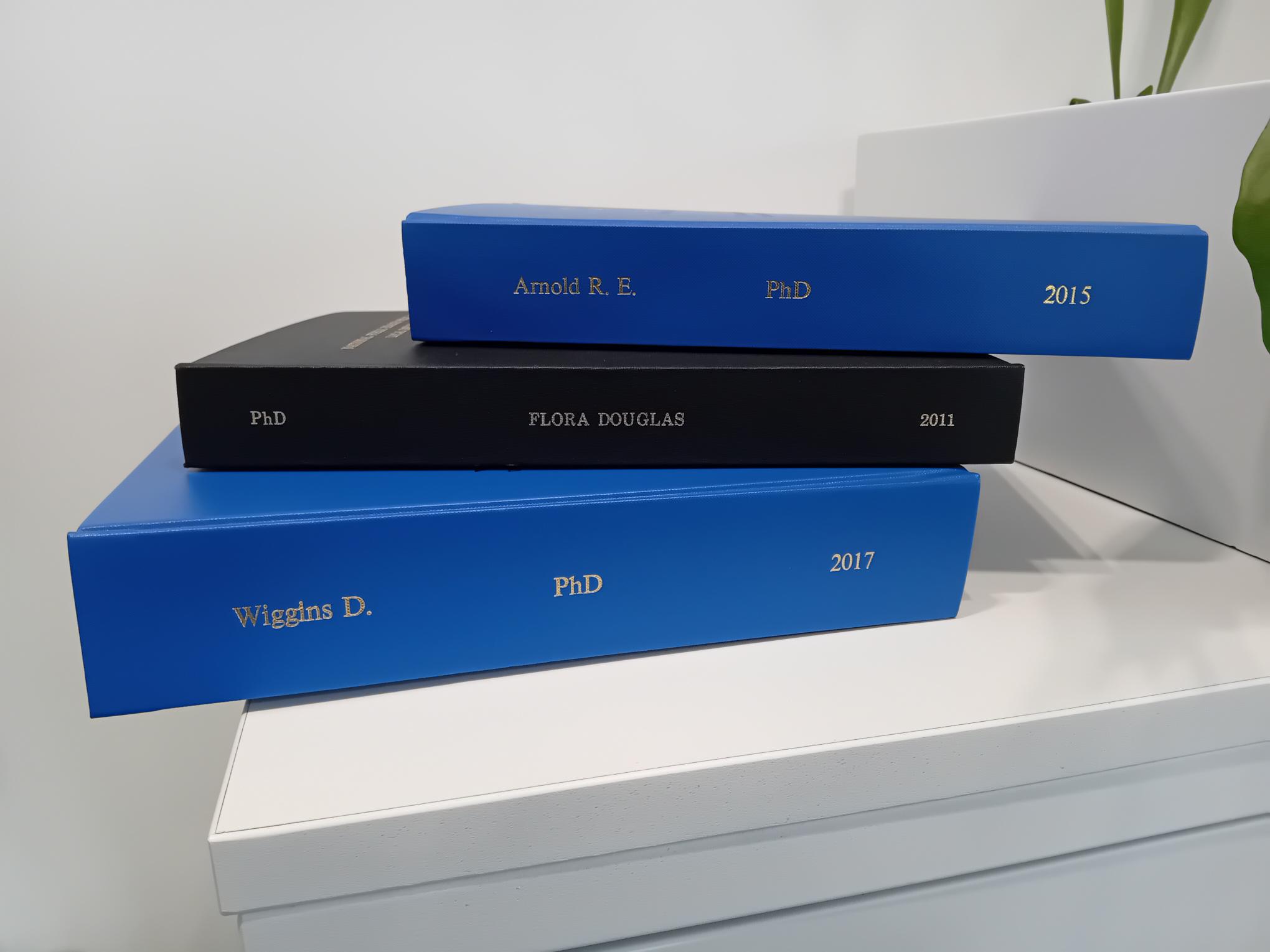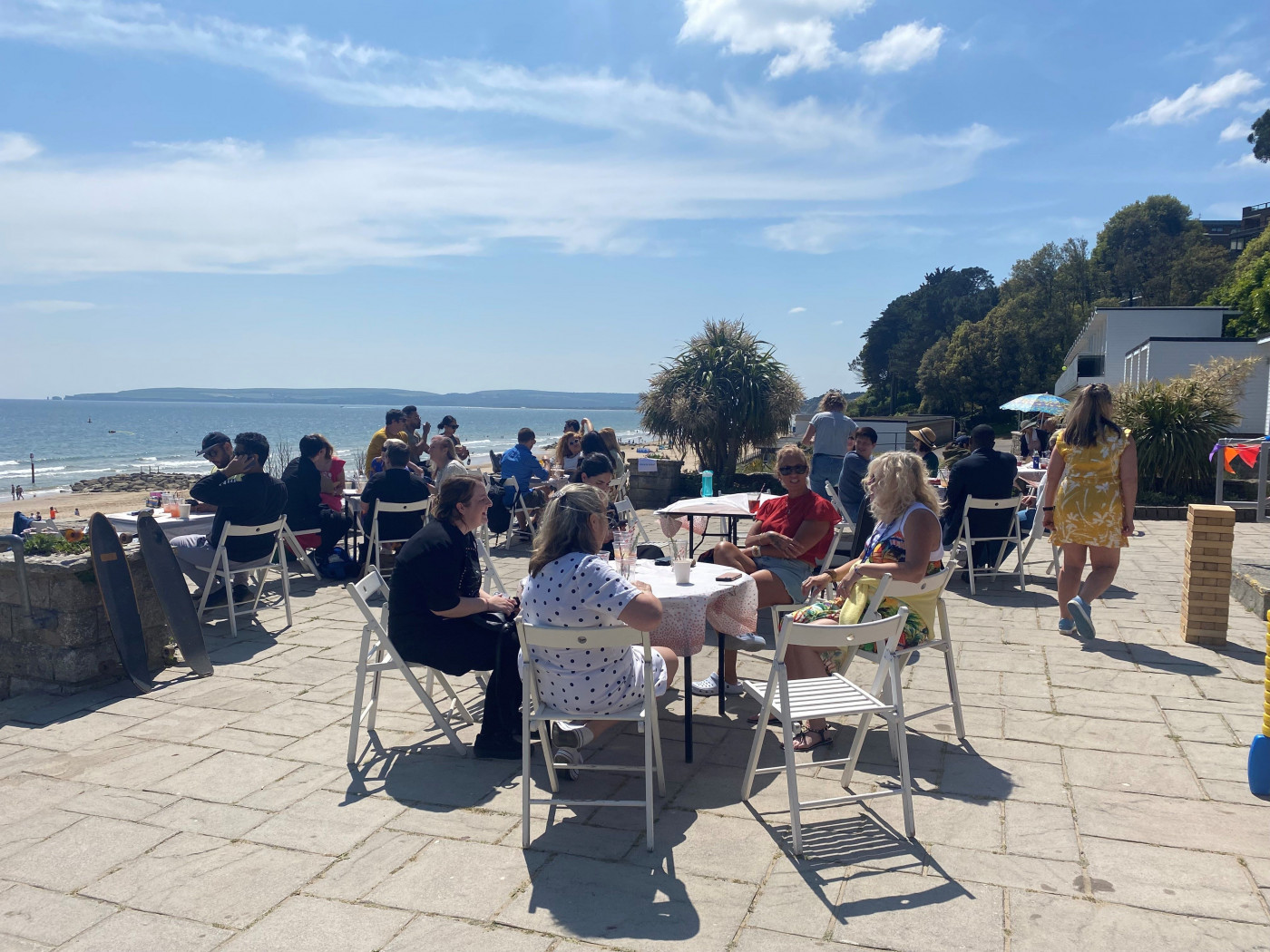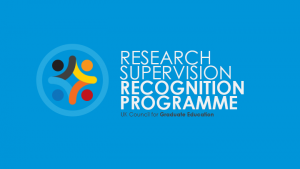Whether you are a seasoned supervisor or just starting out in supervision, professional recognition is a powerful way to validate your expertise and contribute to a thriving research culture at Bournemouth University.

The UK Council for Graduate Education (UKCGE) offers a national accreditation programme that allows you to benchmark your practice against the Good Supervisory Practice Framework.
Why apply?
UK universities are increasingly prioritising supervisor development to enhance research culture and doctoral support. The Research Supervisor Recognition Programme (RSRP) encourages supervisors at all levels to engage in structured self-reflection, using the Good Supervisory Practice Framework to identify strengths and target areas for growth.
Key benefits of RSRP Awards:
- Structured Self-Reflection: Evaluate your methods and decision-making.
- Benchmarked Excellence: Map your practice against national standards.
- Professional Growth: Identify clear pathways for improvement, whether applying for Full or Associate awards.
With over 30 BU supervisors already recognised, now is the perfect time to join their ranks.
Which pathway is right for you?
The Research Supervisor Recognition Programme offers two levels based on your current experience:
| Award Level | Eligibility |
| Recognised Supervisor (Full Award) | For those who have supported doctoral candidates all the way through to final examination and completion |
| Recognised Associate Supervisor (Associate Award) | For those who haven’t yet seen a candidate through to completion, or who supervise in an informal capacity |
Steps to apply
1. Write your reflective account
You will need to write a reflective account of your supervisory practice aligned with the Good Supervisory Practice Framework.
Submit your application using the relevant form:
Recognised Supervisor Reflective Account Form Word 56.37KB
Recognised Associate Supervisor Reflective Account Form Word 55.72KB
Find out more about structured self-reflection
2. Gather your references and supporting documentation
To authenticate your reflective account, you are required to provide supporting documentation.
For the Full Award, you will need:
- A reference from a former doctoral candidate.
- A reference from a colleague who knows about your supervisory practice (e.g., a co-supervisor).
For the Associate Award, you will need:
- A reference from a colleague who knows about your supervisory practice (e.g., a co-supervisor).
- A Supervision Observation report.
Forms for Referees:
3. Seek formal approval
Before your application can move to the final review stage, a formal approval email must be sent from your Associate Dean Research, Innovation and Enterprise directly to researcherdevelopment@bournemouth.ac.uk
Key information
Peer-reviewed feedback: Applications are reviewed by a two-person panel. You will receive detailed, actionable feedback regardless of the outcome.
Fully funded: The Doctoral College is covering the full cost of applications for all BU supervisors.
Support for your application: Access the guidance and tips shared during our recent Supervisory Lunchbite workshop here.
FAQs:UKCGE | Frequently Asked Questions
Important Deadlines
Internal BU Deadline: 9am, Monday 16 March 2026
UKCGE Deadline: Friday 20 March 2026
Expected Outcome: June 2026
Complete applications should be submitted to Julia Taylor (Doctoral College) at researcherdevelopment@bournemouth.ac.uk























 Beyond Academia: Exploring Career Options for Early Career Researchers – Online Workshop
Beyond Academia: Exploring Career Options for Early Career Researchers – Online Workshop UKCGE Recognised Research Supervision Programme: Deadline Approaching
UKCGE Recognised Research Supervision Programme: Deadline Approaching SPROUT: From Sustainable Research to Sustainable Research Lives
SPROUT: From Sustainable Research to Sustainable Research Lives BRIAN upgrade and new look
BRIAN upgrade and new look Seeing the fruits of your labour in Bangladesh
Seeing the fruits of your labour in Bangladesh ECR Funding Open Call: Research Culture & Community Grant – Apply now
ECR Funding Open Call: Research Culture & Community Grant – Apply now ECR Funding Open Call: Research Culture & Community Grant – Application Deadline Friday 12 December
ECR Funding Open Call: Research Culture & Community Grant – Application Deadline Friday 12 December MSCA Postdoctoral Fellowships 2025 Call
MSCA Postdoctoral Fellowships 2025 Call ERC Advanced Grant 2025 Webinar
ERC Advanced Grant 2025 Webinar Update on UKRO services
Update on UKRO services European research project exploring use of ‘virtual twins’ to better manage metabolic associated fatty liver disease
European research project exploring use of ‘virtual twins’ to better manage metabolic associated fatty liver disease